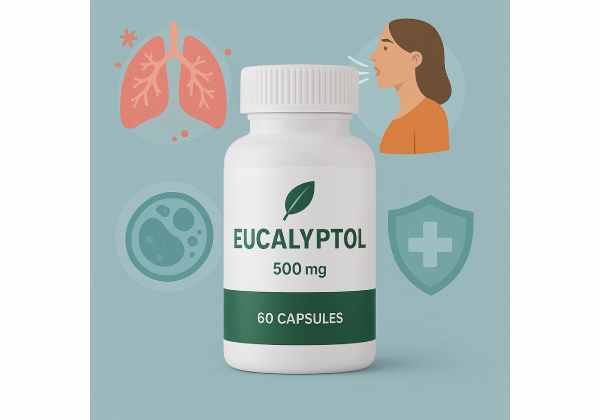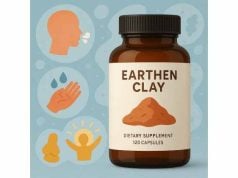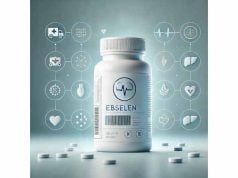
Eucalyptol, also called 1,8-cineole, is the minty-camphor aromatic molecule that gives eucalyptus its signature scent. Beyond fragrance, it has measurable biological actions relevant to coughs and colds: thinning thick mucus, modulating inflammatory signals, and creating a cooling sensation that can make breathing feel easier. In Europe, standardized eucalyptol capsules are used as short-term adjuncts for upper-respiratory symptoms. That is different from swallowing essential oil from a bottle, which is unsafe. This guide keeps the lines clear: what eucalyptol can realistically do, where the evidence is strongest, how to use properly labeled products, and who should avoid them. You will also find practical adult dose ranges used in clinical research, step-by-step home use guidance, and the safety guardrails that matter for families, people with asthma, and anyone taking multiple medicines.
Fast Facts on Eucalyptol
- Short-term use may ease cough and nasal symptoms by thinning mucus and damping airway inflammation.
- Clinical products typically deliver 200 mg eucalyptol three times daily (≈ 600 mg/day) for 7–10 days; some trials used up to 15 days.
- Use standardized capsules or labeled medicines; do not ingest essential oil.
- Avoid in infants and young children; people with seizure disorders, severe asthma, or during pregnancy or breastfeeding should seek medical advice first.
Table of Contents
- What is eucalyptol and how it works
- What benefits are supported by evidence
- How to use eucalyptol safely at home
- How much eucalyptol per day
- Side effects, interactions, and who should avoid
- Evidence snapshot and research notes
What is eucalyptol and how it works
Eucalyptol (chemical name 1,8-cineole) is a monoterpene naturally present in several aromatic plants, most prominently in species of Eucalyptus but also rosemary, sage, and bay. In consumer products you will see it listed as eucalyptol, 1,8-cineole, or simply cineole. It is responsible for the crisp, cool aroma of many cold-care balms and lozenges, and it also appears as the sole active ingredient in standardized oral capsules registered in various countries.
Do not confuse eucalyptol with eucalyptus essential oil.
Eucalyptus essential oil is a mixture of compounds distilled from leaves; cineole is often the major component, but the oil contains other terpenes and varies by species, harvest, and processing. Clinical trials that used oral cineole capsules refer to purified or standardized eucalyptol—not to swallowing essential oil. That distinction matters for both safety and expected effect.
Why eucalyptol helps some people breathe more comfortably.
Research across laboratory and human studies points to three primary actions that fit common cold and cough physiology:
- Mucus modulation and clearance. Eucalyptol can reduce the viscosity of airway secretions and support ciliary transport—helping thick mucus move. When mucus is thinner and moving properly, cough becomes more effective and less frequent.
- Inflammation “downshift.” Eucalyptol can reduce pro-inflammatory signaling (for example, curbing NF-κB–driven cytokines) and down-regulate mucin gene expression in nasal tissue models. In practical terms, that may translate to less swelling and irritation in upper airways, easing pressure and stuffiness.
- Cooling and perceived airflow. By activating cold-sensing receptors, eucalyptol produces a minty, “open” sensation. Even without big changes on airflow tests, this sensory effect can make breathing feel easier and coughing less bothersome.
Where you will encounter it.
Eucalyptol shows up in several categories:
- Standardized capsules (the focus of clinical trials), used short term for acute bronchitis, common cold, or rhinosinusitis symptoms.
- Topical balms and rubs combined with menthol, camphor, or other oils. These are for localized chest or muscle comfort and aromatic effects; they are not substitutes for oral capsules.
- Aromatherapy/essential oils for diffusers or inhalation. These are for scent only and must never be swallowed.
Bottom line: Think of eucalyptol as a short-term, symptom-relief adjunct for uncomplicated respiratory infections. It is not an antibiotic or a cure, but for some adults it can make the worst days of a cold or cough more tolerable—provided the product and route of use match the evidence.
What benefits are supported by evidence
Acute bronchitis (short-term cough).
In a double-blind, placebo-controlled trial in adults with acute bronchitis, participants received 200 mg eucalyptol three times daily for 10 days. By day 4, the eucalyptol group showed a significantly greater reduction in cough-fit frequency and better improvement on a composite bronchitis score versus placebo. The signal attenuated by day 10—consistent with the self-limited nature of viral bronchitis—but the early symptom relief is clinically meaningful during the highest-burden days. The trial also reported good tolerability, with adverse events similar to placebo.
Acute rhinosinusitis (viral or nonpurulent).
A randomized, placebo-controlled study in acute rhinosinusitis used two 100 mg capsules three times daily (still 600 mg/day total) for 7 days. Participants on eucalyptol experienced faster and larger reductions in a validated symptom-sum score (covering nasal obstruction, secretion viscosity and quantity, facial pain on pressure, and related measures) at both day 4 and day 7. Mild side effects were infrequent. These results support eucalyptol as an adjunct when antibiotics are not indicated.
Common cold and timing of therapy.
An exploratory, open-label phase IV study examined whether starting 200 mg three times daily early in a cold made a difference. Participants who began eucalyptol within 12 hours of first symptoms had a lower total symptom burden, an earlier peak in symptoms, and shorter time to remission versus those who started later. While non-randomized, the results align with the mechanism—sooner anti-inflammatory and mucus-modulating effects may blunt the most intense period.
Quality-of-life outcomes in real-world sinusitis.
A large pharmacy-based, non-interventional survey in Germany found that adults using cineole capsules for about 7 days reported significant improvements in symptom frequency, bothersomeness, and impact (work and leisure), with high ratings for overall efficacy and tolerability. Observational results cannot prove causation, but they support day-to-day usefulness and safety in typical users.
Where evidence is weaker.
For topical rubs and diffusers, most data are mechanistic or based on combination products; benefits are plausible (cooling counter-irritation, perceived airflow) but remain less quantified than for oral eucalyptol capsules. For chronic respiratory diseases (asthma, COPD), eucalyptol has been studied mainly as concomitant therapy and should never replace guideline-directed medicines.
What eucalyptol does not do.
It does not eradicate infection, prevent complications, or replace medical care when warning signs are present: persistent high fever, chest pain, shortness of breath, facial swelling, or symptoms worsening beyond a week. In those cases, seek clinical evaluation.
Practical expectations.
For many adults with straightforward viral coughs or sinus symptoms, eucalyptol offers modest, earlier relief—the worst days may feel less severe, and the “open” breathing sensation can help sleep and daytime function. Benefits are additive to rest, fluids, saline rinses, and other supportive care.
How to use eucalyptol safely at home
Choose the right product for your goal.
- For cough and sinus symptoms: Use standardized eucalyptol capsules that list the dose per capsule (for example, 100 mg or 200 mg) and have clear dosing instructions. These are the formulations used in clinical research.
- For scent or chest comfort: Select topical balms or inhalation products labeled for that purpose. They can provide a cooling feeling and perceived airflow but are not equivalent to oral eucalyptol.
How to take standardized capsules (adults).
- Check the label for the per-capsule strength (commonly 200 mg).
- Follow the dose schedule used in studies: 200 mg three times daily (morning, midday, evening) for 7–10 days. Some protocols extended up to 15 days for colds; do not exceed the product’s maximum daily dose.
- Take capsules with water, preferably before meals if the label suggests it.
- Reassess at day 4. Many users notice benefits—less frequent cough fits or improved nasal comfort—within the first few days.
- Stop and seek medical advice if you develop wheeze, chest tightness, rash, persistent fever, or symptoms that worsen.
Complementary home measures.
- Nasal saline rinses or sprays to reduce thick secretions.
- Humidified air or short, warm showers to keep mucus mobile.
- Sleep hygiene: Elevate your head, limit late caffeine, and keep the room cool.
- Cough-smart hydration: Warm fluids can be soothing and help loosen mucus.
What not to do.
- Do not swallow essential oil drops. That is a different product with different safety considerations.
- Do not double up with many “decongestant” or “multi-symptom” products at once; check labels to avoid ingredient stacking or interactions.
- Do not use during pregnancy or breastfeeding without professional guidance; data are limited.
- Do not give adult capsules to children; pediatric dosing and products differ.
Aromatherapy and topical use (optional).
A diffuser or chest rub can add short-term comfort. If you enjoy these, keep them separate from your oral eucalyptol regimen, ventilate rooms, limit diffusion time (15–30 minutes), and avoid undiluted skin application. Keep all scented products away from infants’ faces and out of children’s reach.
Quality signals to look for.
- Labeled cineole/eucalyptol content per capsule; batch number; manufacturer contact.
- Clear maximum daily dose and duration on the packaging.
- A current expiry date and intact seal.
- For essential oils (for scent only), request or check for GC–MS profiles and avoid old, oxidized bottles that can irritate skin and airways.
How much eucalyptol per day
Evidence-based adult dosing (capsules).
- Typical dose used in trials: 200 mg eucalyptol three times daily (total 600 mg/day).
- Duration: 7–10 days for acute bronchitis or rhinosinusitis; some studies for common cold permitted up to 15 days.
- Alternative regimen in one trial: Two 100 mg capsules three times daily—also 600 mg/day total for 7 days.
- Product maximums: Some labeled medicines allow up to 800 mg/day; always follow your specific product’s instructions.
These ranges describe standardized eucalyptol capsules, not essential oil. If you are taking prescription medicines, have chronic lung disease, are pregnant or breastfeeding, or manage multiple conditions, discuss dosing with your clinician before starting.
Timing tips.
Initiating therapy early—ideally within the first 12–24 hours of cold symptoms—may reduce overall symptom burden and shorten duration, based on exploratory clinical data. If you start later, you may still notice improvements, but the effect size can be smaller.
What to combine and what to avoid.
- May combine with: saline rinses, honey (for adults), acetaminophen or ibuprofen (as directed), and intranasal corticosteroids for nasal symptoms if previously recommended by your clinician.
- Use caution with: multiple herbal expectorants or strong topical counter-irritants at the same time—more is not always better and can raise irritation risk.
- Avoid: alcohol with capsules if you notice stomach upset; essential oil ingestion in any amount.
When to stop or switch strategies.
- If symptoms persist beyond 7 days without improvement;
- If you develop fever, unilateral facial swelling, severe facial pain, or shortness of breath;
- If wheezing or chest tightness begins or worsens.
In these scenarios, discontinue self-care and seek medical evaluation. Remember that eucalyptol is an adjunct to symptomatic care, not a stand-alone therapy for complicated or bacterial infections.
Side effects, interactions, and who should avoid
Common and manageable.
- Mild gastrointestinal upset (for example, heartburn) can occur with oral capsules; taking with a small glass of water and avoiding immediate recumbency may help.
- Headache or light irritation can appear with strong aromas; ventilate rooms and limit diffusion sessions if you also use aromatic products.
Less common but important.
- Allergy or skin irritation from topical products containing eucalyptol or eucalyptus derivatives. Patch-test new rubs on a small skin area first.
- Airway sensitivity. A minority of people—especially those with reactive airways—may experience throat irritation or wheeze with strong scents. Discontinue if this occurs.
Serious risks to avoid entirely.
- Ingesting essential oil. Swallowing essential oils (including eucalyptus oil) can cause vomiting, central nervous system depression, and seizures, and has led to severe outcomes in case reports. This is distinct from using standardized eucalyptol capsules intended for oral use.
- Pediatric exposure. Keep all aromatic liquids and capsules locked away. Young children are particularly vulnerable to aspiration, laryngospasm, and seizure risks from concentrated essential oils.
Drug interactions: what we know and do not know.
Eucalyptol is metabolized in the liver, and in vitro data suggest potential interactions with enzyme systems. However, robust human interaction studies are limited. If you take narrow-therapeutic-index drugs, anticoagulants, antiepileptics, or multiple daily medicines, consult your clinician or pharmacist before use. As with any new therapy, monitor for unexpected effects during the first several days.
Who should avoid or seek medical guidance first.
- Infants and young children. Do not use adult products; rely only on pediatric-labeled medicines when prescribed.
- Pregnancy and breastfeeding. Avoid self-medicating with eucalyptol; discuss risks and alternatives with your clinician.
- Seizure disorders or a history of seizures in children. Avoid exposure to strong essential oil aromas and do not use eucalyptol without medical input.
- Severe or brittle asthma/COPD or fragrance sensitivity. Introduce only under clinician guidance; discontinue if symptoms flare.
Emergency signs requiring immediate care.
New or worsening wheeze, chest pain, confusion, repeated vomiting, severe facial pain/swelling, or any suspected ingestion of essential oil warrant urgent medical attention.
Evidence snapshot and research notes
Clinical outcomes most consistently observed.
Across controlled and observational studies, eucalyptol shows the clearest benefit in early symptom relief for acute bronchitis and acute rhinosinusitis/common cold—notably lower cough-fit frequency by day 4 and faster decline in composite symptom scores over the first week. Tolerability is generally rated as good to very good.
Mechanistic findings that support those outcomes.
- Anti-inflammatory signaling: down-regulation of NF-κB–dependent cytokines; reduced mucin gene expression and goblet-cell mucin content in ex vivo nasal tissues.
- Mucus rheology and ciliary transport: improved mucus transport characteristics help explain fewer and less severe cough episodes.
- Sensory modulation: activation of cold-sensing receptors contributes to perceived airflow and comfort.
Methodological context.
The gold-standard bronchitis trial was randomized and double-blind with clear dosing (200 mg three times daily). The classic rhinosinusitis trial was also randomized, double-blind, and placebo-controlled over 7 days using an equivalent total daily dose. Real-world and exploratory studies add practical context (tolerability, timing advantages) but have inherent limitations (non-randomized designs, potential selection bias).
What remains uncertain.
- Head-to-head comparisons with other OTC options (for example, guaifenesin or intranasal corticosteroids) are limited.
- Optimal duration beyond 10–15 days has not been established and is not recommended for self-care of acute illnesses.
- Chronic indications: while adjunctive benefits have been reported in asthma or COPD studies, eucalyptol should not replace guideline therapies; more independent, adequately powered trials are needed.
Practical takeaway for readers.
If you are an otherwise healthy adult with a typical cold, cough, or viral sinus symptoms, a 7–10 day trial of 200 mg eucalyptol three times daily—from a reputable, standardized capsule product—may help you feel better sooner, especially if started early. Keep safety guardrails in place, and escalate care if red-flag symptoms appear.
References
- Efficacy of cineole in patients suffering from acute bronchitis: a placebo-controlled double-blind trial 2013 (RCT)
- Therapy for acute nonpurulent rhinosinusitis with cineole: results of a double-blind, randomized, placebo-controlled trial 2004 (RCT)
- 1,8-cineole (eucalyptol): A versatile phytochemical with therapeutic applications across multiple diseases 2023 (Systematic Review)
- The impact of cineole treatment timing on common cold duration and symptoms: Non-randomized exploratory clinical trial 2024 (Clinical Study)
- Rhinosinusitis Treatment with Cineole: Patient-Reported Quality of Life Improvements from a Non-Interventional, Pharmacy-Based Survey 2023 (Observational Study)
Disclaimer
This article is educational and is not a substitute for personalized medical advice, diagnosis, or treatment. Eucalyptol capsules are for short-term use in adults with uncomplicated respiratory symptoms. Do not ingest essential oil. Keep all aromatic products out of children’s reach. If you are pregnant, breastfeeding, have asthma or a seizure disorder, or take multiple medicines, consult a qualified clinician before use. Seek urgent care for severe or worsening symptoms, breathing difficulty, or any suspected essential-oil ingestion.
If this guide was helpful, please consider sharing it on Facebook, X, or your preferred platform, and follow us for future evidence-based health articles. Your support helps us continue creating high-quality content.






